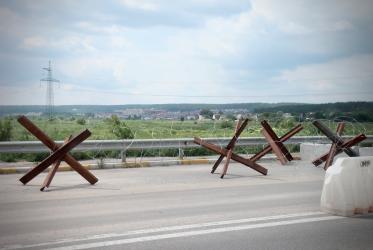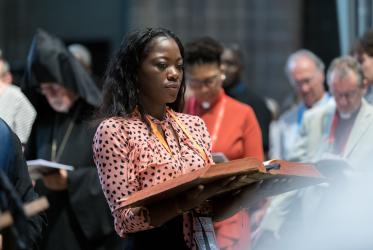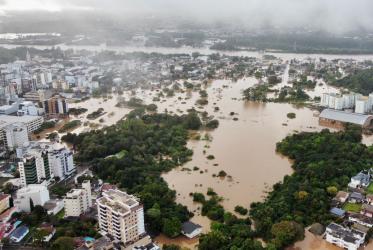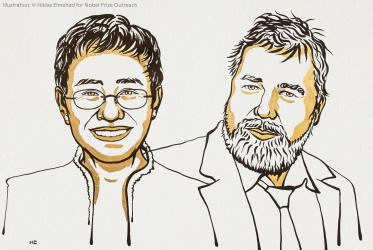Displaying 1 - 20 of 93
07 February 2024
WCC will host consultation on evangelism and formation in Latin America
20 September 2023
In wake of floods in Brazil, WCC expresses concern and solidarity
09 September 2023
Migrants in Argentina find listening ears and open hearts
04 November 2022
Ukraine: Responding to humanitarian need
08 September 2022
WCC stands in solidarity with victims of major flood in Brazil
17 February 2022
WCC congratulates 2021 Nobel Peace Prize laureates
14 October 2021

















